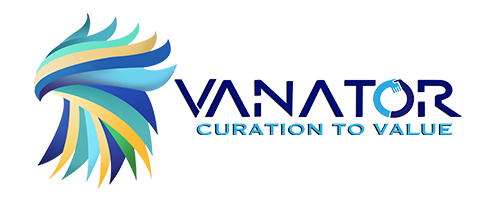Are you an upcoming or veteran Java developer looking for ways on how to crack Java developer interviews in 2024? With Artificial Intelligence existing in the modern day technology, it has become really difficult to clear java interviews as people are more focused on sorting out unproductive candidate
- Home
- Blogs
- How to Crack Java Interviews in 2024
How to Crack Java Interviews in 2024
Are you an upcoming or veteran Java developer looking for ways on how to clear java interviews in 2024?
With Artificial Intelligence existing in the modern day technology, it has become really difficult to clear java interview as people are more focused on sorting out unproductive candidates.
Don’t worry, you’ve got nothing to be scared of. In this blog we will discuss the various topics they ask questions on in java interview across all levels.
Moreover, this blog post is specially curated to help you how to clear java interviews. Stick around to discover the top tips and tricks to perform ten times better in your interviews.
We will provide you with the required materials, be it the list of the best java interview questions, or tips for crafting your resume.
Let’s begin the blog by reading about some different types of Java developers and how to clear java interviews questions asked in those fields.
How to Crack Java Interviews? - Topics To Study

In this section, we will discuss the possible topics you need to prepare how to clear java interviews. Let’s start with core Java and then reach more complex topics.
1. Core Java
When interviewing for a Java Developer, it’s important to focus on Core Java subjects and deliver a complete answer. While not understanding any framework is not a problem, being unfamiliar with Core Java may be.
Topics To Study For
- String Concepts and Hashcode-Equal Methods.
- Immutability (custom immutable classes and examples in JDK).
- OOPS ideas (all four pillars and the solid principle).
- Serialization (serialversion UUID)
- Collection Framework/Concurrent
- Collection (Hashamap, concurrent hashmap, ArrayList, HashSet).
- Exception Handling (Especially Runtime Exceptions).
- Multithreading, particularly Executor Framework, which contains ThreadPool (deadlock, Thread-dump).
- The Java Memory Model describes how objects, methods, and variables are stored in each section of Java memory.
- Trash collection (how it works, how it trash collects objects, and the method used to do so)
Core Java Developer Interview Questions
- How do you make a bespoke immutable class?
- What are some instances of immutable classes in Java?
- What are hashCode() and equals()?
- What happens if you use Object as a custom key in a map?
- How do I use it correctly?
- How does the ThreadPoolExecutor work?
- What are deep and shallow copies?
- What is the Java Memory Model as of the most recent Java version?
- The Java APIs Arrays.sort() and Collections.sort() employ what algorithm?
- How does one construct a custom annotation in Java?
- What is a CompletableFuture?What are deep and shallow copies?
- How do HashMaps and HashSets function internallyWhat is a CompletableFuture?
2.Project flow and Architecture
In this issue, the interview incharge would want to assess if the candidate has any experience. If not, then they start asking you questions about your initiative.
The interviewer will ask about its usefulness, flow, and architecture. They will also inquire about the tech stack, how it is implemented in production, and their function and contributions.
Please write down all you know about your project someplace so you fall short later. Remember, you are the only one who knows anything about it, so be confident.
Typical interview question would Be
- Please inform me about your project’s architecture. Please describe and illustrate the architecture, framework, and technology utilized.
3. Java-8/Java-11/Java17
To excel in Java interview, it’s crucial to grasp the significant features introduced in recent Java APIs. A strong understanding of topics like optional API is essential for demonstrating your expertise. Here is a detailed list of topics you should study:
Topics To Study
- Java 8 features
- Default/Static methods
- Lambda expression
- Functional interfaces
- Optional API
- stream API
- pattern matching
- text block
- modules
Java-8/Java-11/Java-17 base Questions
- What is new in Java 8/Java11/Java17?
- What is a parallel stream in Java and how does it work?
- What is the new improvement in the Java memory model, improvement in Java 8 hashmap?
To accurately answer this question, it’s essential to be aware of Java’s version-specific features. For instance, virtual threads were introduced in Java 21, while sealed classes debuted in Java 17.
4. Hibernate/Spring-data Jpa/Database(SQL or NoSQL)
A deep understanding of the data layer, especially Hibernate and JPA, is crucial for any Java developer. Being prepared to write SQL queries is essential to demonstrate your ability to work effectively with the underlying database. By studying this topic, you will thoroughly be able to learn how to crack java developer interviews in 2024.
Topics To Study
- JPA Repositories: Relationship with Entities.
- joins, indexes, procedures, and functions.
- SQL searches on employee department queries and the highest Nth salary requests.
- Relational and non-relational database concepts.
- CRUD activities in databases
Questions You Can Prepare For
- What’s the difference between SQL and NoSQL?
- What exactly is sharding in databases?
- What is a join?
- What is a JPA?
- What is the parent-child relationship?
5. Spring Framework, Spring-Boot, Microservice, and Rest API
Spring Framework, Spring Boot, Microservices, and REST APIs are extensive subjects. Expect a mix of fundamental and advanced questions in your interview. Strong knowledge in these areas is crucial for success.
Topics To Cover
Core Spring Concepts:
- Dependency Injection and IoC.
- Spring MVC configuration.
- Annotations.
- CRUD operations.
- Beans, Scopes, and Profiles.
- Bean lifecycle.
- Application and Bean context.
- Aspect-Oriented Programming (AOP).
- Exception handling and advice.
- Security (JWT, OAuth).
- Actuators
Spring Web and Reactive:
- WebFlux and Mono/Flux
- HTTP methods
Spring Cloud and Microservices:
- Microservices architecture.
- Spring Cloud.
- JPA.
Java Developer Interview Questions To Prepare For
- What is the use of RequestMapping annotation?
- What is an Actuator and its uses?
- What is the use of RestController annotation?
- How do you ensure that your application is fault-tolerant and resilient?
- What is distributed tracing?
- What is the purpose of traceId and spanId in a Spring Boot application?
- What are WebFlux and the Mono Framework in Spring Boot?
- How do you make your application fault tolerant and resilient?
- How does one deactivate auto-configuration in a Spring Boot application?
- How can I secure REST APIs?
- What is distributed tracing?
- What is the purpose of traceId and spanId in a Spring Boot application?
- What are WebFlux and the Mono Framework in Spring Boot?
- What is a cyclic dependency in Spring, and how can you avoid it?
6. Best Practice(Design pattern/Microservice pattern)
Expect questions on both classic and modern design patterns. Traditional patterns like Singleton, Factory, and Observer are common, but knowledge of patterns used in microservices architectures is equally important.
- Circuit Breaker
- SAGA
- CQRS
- Two-phase commit, BFF, API Gateway.
Mastering both classic and modern design patterns is crucial. While foundational patterns like Singleton, Factory, and Observer are essential, a strong grasp of microservice-oriented architectural patterns is equally important for career advancement.
Java Developer Interview Questions To Prepare For
- Explain the Singleton design pattern and its use cases.
- Describe the Builder design pattern and its advantages.
- What is the Facade design pattern, and when would you use it?
- Can you name two common microservice design patterns?
- Describe a scenario where you would use a specific microservice pattern.How do these patterns contribute to the overall architecture of a microservices system?
7. Devops Questions On Deployment Tools(Kubernetes,Cloud,Kafka)
DevOps and deployment tools are frequently emphasized, especially in technical interviews with managers or leads. A solid understanding of tools such as Jenkins, Kubernetes, Kafka, and cloud platforms is essential.
Java Interview Questions To Prepare For This Topic
- Explain the core components of Kubernetes: Pods, Containers, Nodes, and Clusters.
- What is a ReplicaSet, and how does it differ from a Deployment?
- Describe the role of Services and Ingress in Kubernetes.
- How would you handle configuration management in Kubernetes?
- Can you explain the concept of Kubernetes namespaces?
- Differentiate between public, private, and hybrid cloud models.
- What are the key benefits of adopting a hybrid cloud strategy?
- How would you migrate a monolithic application to a cloud-native architecture?
- Describe Apache Spark’s architecture and core components.
- Explain the difference between RDDs and DataFrames in Spark.
- How would you integrate Apache Spark with a Spring Boot application for big data processing?
- What is Apache Kafka, and how does it differ from traditional messaging systems?
- Explain the concepts of partitions, topics, producers, and consumers in Kafka.
- How do offsets and consumer groups work in Kafka?
- These questions delve deeper into the topics and provide a broader understanding of the technologies.
8. Coding
Stream API proficiency is crucial for modern Java development. Expect to encounter coding challenges that test your ability to effectively use streams. Practice is key to mastering this essential skill and increasing your chances of interview success.
Study these topics thoroughly, it will stay crucial in how to crack Java developer interviews in 2024
Topics To Cover For
Stream API: Expect coding problems that leverage the power of Java Streams for data manipulation and processing.
Core Java Fundamentals:
Demonstrate proficiency in basic data structures like Strings and Arrays through coding exercises.
Sorting and Searching: Apply standard algorithms and Java libraries to solve problems related to sorting and searching data.
Java Interview Coding Questions
- Implement a solution to determine the second largest element in an integer array using Java Streams.
- Given a string, identify duplicate characters and their frequencies using Stream API.
- Find the first non-repeating character within a string using Java Streams.
- Extract unique characters from a given string using Stream operations.
- Determine the longest string within a provided array of strings.
- Sort an integer array containing only two distinct values (e.g., 0 and 1) into ascending order.
- Locate the first recurring character in a string using Java Streams.
35 + Best Java Interview Questions For Freshers

If you are looking for how to clear java interviews, then this list of best java interview questions for freshers gives everything you need to prepare for your interview!
- How can you implement a Stack using an Array?
- How do you reverse a linked list in Java?
- How do you handle multiple exceptions in Java?
- How do you implement a merge sort algorithm in Java?
- How do you construct a bubble sort algorithm in Java?
- How do you construct a binary search algorithm in Java?
- What is a thread in Java?
- Give an example of how to construct a thread.
- What is the distinction between static and non-static variables in Java?
- What is a deadlock in Java?
- What can you do to avoid it?
- What is an interface in Java?
- Provide an example.
- What is the distinction between a while loop and a do-while loop in Java?
- What’s the distinction between a private and a protected method in Java?
- What is the difference between a String, StringBuilder, and StringBuffer in Java?
- What is a binary search tree?
- How can you implement one in Java?
- What is the difference between an abstract class and an interface in Java?
- What is the difference between a shallow copy and a deep copy in Java?
- What is Java?
- What are the features of Java?
- What is JVM?
- What is the difference between JDK, JRE, and JVM?
- What is the difference between a class and an object?
- What is object-oriented programming?
- What are the four principles of OOP?
- What is inheritance?
- What is encapsulation?
- What are the different types of variables in Java?
- What is polymorphism?
- What is an array?
- What are control structures in Java?
- What is abstraction?
- What are access modifiers?
- What are static variables and methods?
- What are the final variables and methods?
- What is a constructor?What is exception handling?
- What are the different types of exceptions in Java?
- Provide an example of Polymorphism.
Wrapping Up Words
Commit to studying all these topics, our comprehensive guide will help how to clear java interviews.
Remember, practice hard and try to consume the knowledge rather than swallowing it .If you are a business looking for Java developers and are unable to locate the right talent?
Then you should consider partnering with an IT recruitment agency such as Vanator RPO. We can help you find the righteous talent! Good luck with your interviews!
Igniting Your Company's Potential with the right talent!
Our RPO Experts Redefine Recruitment for an Inspired Workforce and Sustained Growth. We go miles on search for your best fit.
FAQ's
Java offers a robust and rewarding career path. Its versatility across industries and its continuous evolution ensures ample opportunities for growth and specialization.
- You can clear a Java developer interview by studying these topics thoroughly:
- Coding Questions
- Devops questions on deployment Tools(Kubernetes,Cloud,Kafka)
- Best practice(Design pattern/Microservice pattern)
- Hibernate/Spring-data Jpa/Database(SQL or NoSQL)
Focus on core Java, data structures, algorithms, and frameworks. Practice coding, especially with Streams. Good communication is key.
Yes, 1 hour is more than enough to prepare for your interview. The major thing which controls the result of the interview is your confidence. Keep your confidence high, take a break, be calm, and then answer the queries raised.
Also Read:
-
 Best Meta Ads Marketing Services in Canada
Best Meta Ads Marketing Services in Canada -
 Best Technical Virtual Assistant Services in Europe
Best Technical Virtual Assistant Services in Europe -
 Best Offshore Recruitment Services in Europe: Top Providers, Benefits, Pricing & Complete Guide
Best Offshore Recruitment Services in Europe: Top Providers, Benefits, Pricing & Complete Guide -
 Best Business Development Virtual Assistant Services in Europe
Best Business Development Virtual Assistant Services in Europe -
 Best Email Management Virtual Assistant Services in Europe (2026 Guide) - Copy
Best Email Management Virtual Assistant Services in Europe (2026 Guide) - Copy -
 Best Email Management Virtual Assistant Services in Europe (2026 Guide)
Best Email Management Virtual Assistant Services in Europe (2026 Guide) -
 Best Sales Virtual Assistant Services in Europe: A Comprehensive Guide to Scaling Your Sales Operations
Best Sales Virtual Assistant Services in Europe: A Comprehensive Guide to Scaling Your Sales Operations -
 Best Virtual Assistant Services in Europe
Best Virtual Assistant Services in Europe -
 Social Media Marketing Landscape in Vancouver and the Greater Canadian Market for 2026
Social Media Marketing Landscape in Vancouver and the Greater Canadian Market for 2026 -
 Best IT & Healthcare Offshore Recruiters in 2026: Industry-Specific Talent Solutions & Expert Strategies
Best IT & Healthcare Offshore Recruiters in 2026: Industry-Specific Talent Solutions & Expert Strategies -
 Top Offshore Recruiters in 2026: Complete Guide to Premium RPO Partners & Scaling Strategies
Top Offshore Recruiters in 2026: Complete Guide to Premium RPO Partners & Scaling Strategies -
 Top Performance Marketing Services in Europe: A 2025 Comprehensive Guide: A 2025 Comprehensive Guide
Top Performance Marketing Services in Europe: A 2025 Comprehensive Guide: A 2025 Comprehensive Guide -
 Top Email Marketing Services in Europe
Top Email Marketing Services in Europe -
 Top 10 Social Media Marketing Services in Europe 2025: Expert Rankings & Guide
Top 10 Social Media Marketing Services in Europe 2025: Expert Rankings & Guide -
 Top Digital Marketing Services in Europe
Top Digital Marketing Services in Europe -
 Top Offshore Healthcare Recruitment Services in USA: The Complete Guide to Finding Quality Talent
Top Offshore Healthcare Recruitment Services in USA: The Complete Guide to Finding Quality Talent -
 Best Customer Service Virtual Assistant Services in USA
Best Customer Service Virtual Assistant Services in USA -
 The Complete Guide to Finding the Best Executive Assistant Services in Canada (2025)
The Complete Guide to Finding the Best Executive Assistant Services in Canada (2025) -
 Payrolling Virtual Assistant Services in the USA: The Deep-Dive Guide for Business Owners (2025)
Payrolling Virtual Assistant Services in the USA: The Deep-Dive Guide for Business Owners (2025) -
 Top Virtual Assistant Services in Australia: Your Complete 2025 Guide
Top Virtual Assistant Services in Australia: Your Complete 2025 Guide -
 Best Business Development Virtual Assistant in USA: Complete 2025 Guide
Best Business Development Virtual Assistant in USA: Complete 2025 Guide -
 Best Virtual Assistant Services in Canada: A Comprehensive 2025 Guide
Best Virtual Assistant Services in Canada: A Comprehensive 2025 Guide -
 Offshore IT Recruiting Experts in USA: Complete Guide to Global Talent Acquisition in 2025
Offshore IT Recruiting Experts in USA: Complete Guide to Global Talent Acquisition in 2025 -
 Healthcare Offshore Recruitment in Canada: The Complete Guide to Finding Top Medical Talent Globally
Healthcare Offshore Recruitment in Canada: The Complete Guide to Finding Top Medical Talent Globally -
 Recruitment Hidden Facts No One Knows About: Untold Industry Secrets Shaping the Future of Hiring in 2025
Recruitment Hidden Facts No One Knows About: Untold Industry Secrets Shaping the Future of Hiring in 2025 -
 Best Digital Marketing Hacks to Generate Leads for Real Estate Business in 2025
Best Digital Marketing Hacks to Generate Leads for Real Estate Business in 2025 -
 Best IT Recruiting Firms in Canada: Your Complete 2025 Guide to Finding Top Technology Talent
Best IT Recruiting Firms in Canada: Your Complete 2025 Guide to Finding Top Technology Talent -
 10 Best Trending Graphic Design AI Hacks in 2025: Your Ultimate Productivity Powerhouse
10 Best Trending Graphic Design AI Hacks in 2025: Your Ultimate Productivity Powerhouse -
 Best Recruitment AI Tools to Hire Quality Candidates – 2025 SEO-Friendly Guide
Best Recruitment AI Tools to Hire Quality Candidates – 2025 SEO-Friendly Guide -
 Top LinkedIn Marketing Hacks in 2025: Proven Strategies to Skyrocket Your Business Leads
Top LinkedIn Marketing Hacks in 2025: Proven Strategies to Skyrocket Your Business Leads -
 How Perplexity AI is the Best AI Tool for All Source of Information: The Ultimate Guide to Next-Generation Search
How Perplexity AI is the Best AI Tool for All Source of Information: The Ultimate Guide to Next-Generation Search -
 Digital Marketing Hacks to Grow Recruiting Firms in 2025
Digital Marketing Hacks to Grow Recruiting Firms in 2025 -
 Top Recruiting Hacks to Tap the Right Candidate and Screen Them the Right Way — Upscale Your Tech Hiring in the USA (Vanator’s 2025 Guide)
Top Recruiting Hacks to Tap the Right Candidate and Screen Them the Right Way — Upscale Your Tech Hiring in the USA (Vanator’s 2025 Guide) -
 AI and Automation in RPO: Future-Proofing Recruitment for 2025
AI and Automation in RPO: Future-Proofing Recruitment for 2025 -
 Best Offshore Recruiters in Canada: 2025 Ultimate Guide to Winning Talent & Market-Changing Hacks
Best Offshore Recruiters in Canada: 2025 Ultimate Guide to Winning Talent & Market-Changing Hacks -
 Top Recruiting Services to grow your sales team in the USA
Top Recruiting Services to grow your sales team in the USA -
 Latest Google Ads Growth Techniques in 2025
Latest Google Ads Growth Techniques in 2025 -
 Top Recruiting Hacks for IT Sector in 2025: Offshore Recruiting Edition
Top Recruiting Hacks for IT Sector in 2025: Offshore Recruiting Edition -
 Best Performance Marketing Services in Toronto
Best Performance Marketing Services in Toronto -
 How IT & Healthcare firms saved more than $500,000 with Vanator RPO
How IT & Healthcare firms saved more than $500,000 with Vanator RPO -
 How IT Offshore Recruiting will change your IT Team Dynamics
How IT Offshore Recruiting will change your IT Team Dynamics -
 Top VMS recruiting services in Canada
Top VMS recruiting services in Canada -
 Best Recruiting Agencies (RPO) in 2025
Best Recruiting Agencies (RPO) in 2025 -
 Top Sales Virtual Assistant Services in Canada: Your Ultimate Guide to Finding the Perfect Sales Expert
Top Sales Virtual Assistant Services in Canada: Your Ultimate Guide to Finding the Perfect Sales Expert -
 Top Virtual Assistant Services in Australia
Top Virtual Assistant Services in Australia -
 Best Business Development Virtual Assistants in Canada: Your Ultimate Guide to Growth and Success
Best Business Development Virtual Assistants in Canada: Your Ultimate Guide to Growth and Success -
 Best Marketing Virtual Assistants in USA: A Comprehensive Guide for 2025
Best Marketing Virtual Assistants in USA: A Comprehensive Guide for 2025 -
 Best Sales Virtual Assistants in USA: Your Ultimate Guide to Boosting Revenue
Best Sales Virtual Assistants in USA: Your Ultimate Guide to Boosting Revenue -
 Best Healthcare Recruiting Services in Canada
Best Healthcare Recruiting Services in Canada -
 Best Graphic Design Services in Canada for Large Businesses and Startups
Best Graphic Design Services in Canada for Large Businesses and Startups -
 Dubai Work Visa 2025: Overview and Eligibility
Dubai Work Visa 2025: Overview and Eligibility -
 Modern Candidate Screening in 2025: Best Methods for Startup Hiring
Modern Candidate Screening in 2025: Best Methods for Startup Hiring -
 Top Virtual Assistant Services for Digital Marketing & Admin Support in the UAE
Top Virtual Assistant Services for Digital Marketing & Admin Support in the UAE -
 Best Virtual Assistant Services in Australia: Your Ultimate Guide to Smart Delegation
Best Virtual Assistant Services in Australia: Your Ultimate Guide to Smart Delegation -
 Best Virtual Assistant Services in Canada: Your Ultimate Guide to Efficiency and Growth
Best Virtual Assistant Services in Canada: Your Ultimate Guide to Efficiency and Growth -
 Payrolling Executives In USA
Payrolling Executives In USA -
 Best Customer Service Executives in USA: Elevate Your Enterprise Support
Best Customer Service Executives in USA: Elevate Your Enterprise Support -
 Scaling Your Healthcare Team in 2025 : Recruitment Techniques That Work
Scaling Your Healthcare Team in 2025 : Recruitment Techniques That Work -
 Best Virtual Assistant Services in USA
Best Virtual Assistant Services in USA -
 How Vanator RPO Will elevate your Hiring Process in 2025
How Vanator RPO Will elevate your Hiring Process in 2025 -
 Best Talent Acquisition Consultants In USA
Best Talent Acquisition Consultants In USA -
 Best Payroll Outsourcing Companies in USA
Best Payroll Outsourcing Companies in USA -
 Best Biotechnology Recruiters in Australia
Best Biotechnology Recruiters in Australia -
 Best Insurance Recruitment Agencies in Australia
Best Insurance Recruitment Agencies in Australia -
 Best Finance Recruiters in Australia
Best Finance Recruiters in Australia -
 Best Candidate Sourcing Guide in 2024
Best Candidate Sourcing Guide in 2024 -
 Top Healthcare Offshore Recruitment Firms in Canada
Top Healthcare Offshore Recruitment Firms in Canada -
 Premium Offshore Recruitment Services
Premium Offshore Recruitment Services -
 How to Crack Java Interviews in 2024
How to Crack Java Interviews in 2024 -
 Full Cycle Recruiting in 2024
Full Cycle Recruiting in 2024 -
 30 Best Recruiting CRM Software of 2024
30 Best Recruiting CRM Software of 2024 -
 Top Healthcare Recruitment Agencies in 2024
Top Healthcare Recruitment Agencies in 2024 -
 Top Healthcare Recruitment Agencies in USA
Top Healthcare Recruitment Agencies in USA -
 Top IT recruitment firms in USA
Top IT recruitment firms in USA -
 Best IT Recruiters in Canada
Best IT Recruiters in Canada -
 Best Recruitment Services in USA
Best Recruitment Services in USA -
 Top VMS Recruiting Services in USA
Top VMS Recruiting Services in USA -
 Top Engineering Recruitment Agencies in 2024
Top Engineering Recruitment Agencies in 2024 -
 Top Healthcare Recruitment Agencies in Canada
Top Healthcare Recruitment Agencies in Canada -
 Best IT Recruitment Agencies In USA
Best IT Recruitment Agencies In USA
Connect with Us
Feel free to drop us a line – we’re here to hear from you and help you in the best possible way

